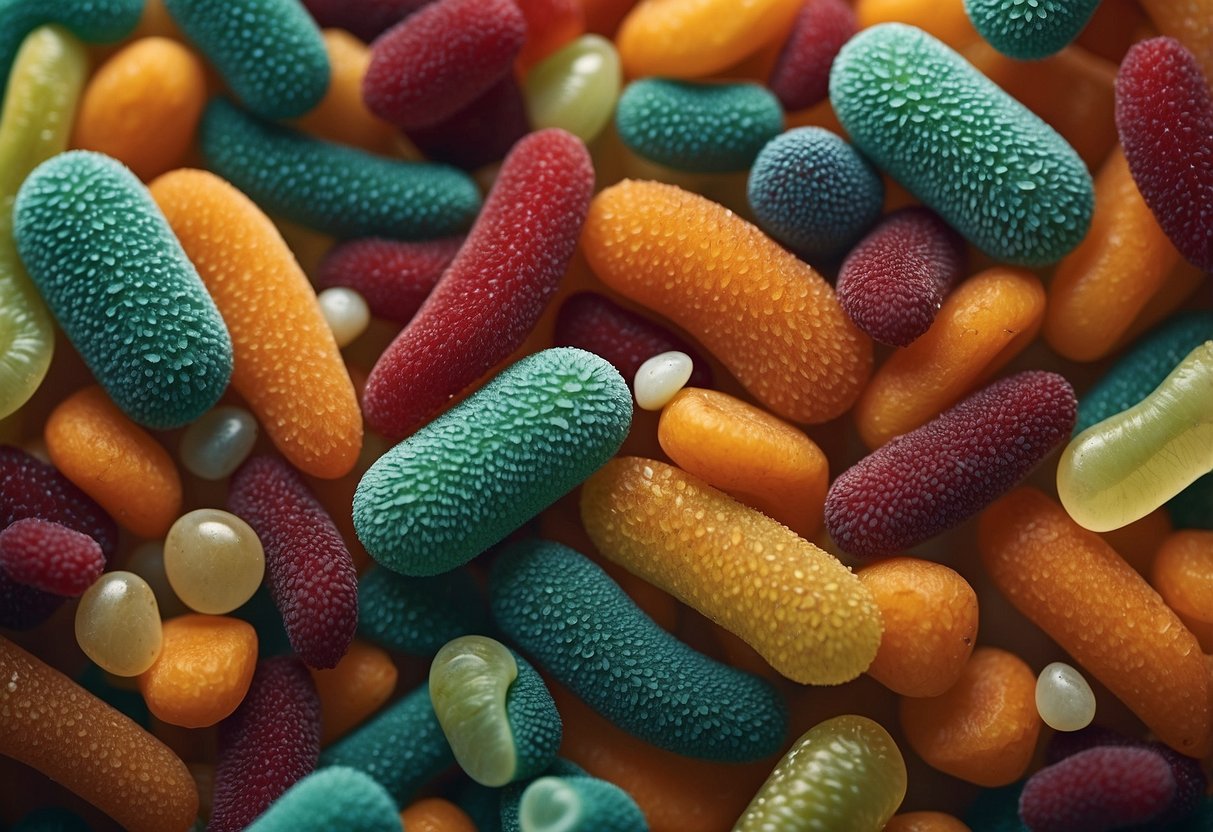
Nutrition and Gut Health

Nutrition has a significant impact on gut health. Specific foods and dietary components play key roles in maintaining a healthy gut microbiota, which, in turn, contributes to overall wellbeing.
Importance of Fibers and Nutrients
Fibers are essential for gut health. They provide a food source for beneficial bacteria in the gut, promoting a balanced microbiota. Whole grains, fruits, and vegetables are rich in fiber, aiding in digestion and preventing constipation. Additionally, the nutrients, vitamins, and minerals found in these foods support various bodily functions, contributing to overall health.
A diet rich in fiber also helps in regulating blood sugar levels and lowering cholesterol. Soluble fiber, found in foods like oats and bananas, forms a gel-like substance in the gut, slowing down digestion and absorption, which can help in stabilizing blood sugar. Insoluble fiber, present in whole grains and vegetables, adds bulk to the stool, facilitating smoother bowel movements.
The Role of Probiotic and Prebiotic Foods
Probiotics are live beneficial bacteria found in fermented foods like yogurt, sauerkraut, and kefir. These bacteria contribute to a healthy gut microbiota by outcompeting harmful bacteria and supporting immune function. Regular consumption of probiotics has been linked to improved digestion, reduced inflammation, and better mental health.
Prebiotics, on the other hand, are non-digestible compounds that feed beneficial gut bacteria. Foods such as onions, garlic, and bananas are rich in prebiotics. By providing nourishment for beneficial bacteria, prebiotics help maintain a balanced microbiota. This synergy between probiotics and prebiotics is crucial for optimal gut health and overall wellbeing.
Lifestyle Factors Affecting Gut Health

Lifestyle choices, such as physical activity and managing sleep and stress, play a crucial role in maintaining gut health and, by extension, overall wellbeing.
Physical Activity and Gut Microbiota
Regular exercise contributes positively to gut health by influencing the diversity and composition of gut microbiota. Studies show that athletes often have a more varied gut microbiome than non-athletes. This diversity is linked to better metabolism and nutrient absorption, which can lead to improved overall health.
Aerobic exercises, such as running or cycling, help increase the number of beneficial bacterial species in the gut. These exercises promote the growth of short-chain fatty acids, which are essential for colon health. Physical activity also reduces inflammation, which can have a positive effect on conditions like irritable bowel syndrome (IBS).
Increasing physical activity levels can lead to better gut health, emphasizing the need for a balanced, active lifestyle. It’s clear that even moderate exercise can make a significant difference.
Impact of Sleep and Stress on the Gut
Adequate sleep and effective stress management are essential for maintaining a healthy gut. Poor sleep patterns can disrupt the balance of the gut microbiota, leading to digestive issues and a weakened immune system. Studies indicate that a lack of sleep may alter the gut-brain axis, affecting mood and cognitive function.
Stress, when chronic, can negatively impact gut health through hormonal pathways and inflammatory responses. Elevated stress levels may cause symptoms like bloating, stomach pain, and changes in bowel habits. Practicing mindfulness and meditation can help manage stress, thereby supporting gut health.
Stress management techniques, such as yoga and deep-breathing exercises, have been shown to restore gut balance. Prioritizing sleep and employing effective stress reduction strategies can significantly benefit the gut microbiome, reinforcing the importance of these lifestyle choices.



